- The French Music Hall Program 1 & Program 2
These programs include recordings from the 30s and 40s, with stars such as Arletty, Josephine Baker, Maurice Chevalier, Frehel, Jean Gabin, Lys Gauty, Rina Ketty, Mistinguett, Edith Piaf, and Berthe Sylva. Please write to me with comments, especially suggestions for other artists.
en francais: chanteuses ; chanteurs
Some details:
Arletty IMDB.com 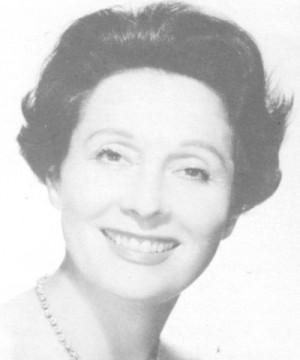 A secretary, Arlette-Leonie Bathiat posed several times as a model for different painters and photographers. In 1920 she debuted on stage at a theatre. She began to work in movies in 1930, illuminating the screen with an unusual mixture of Parisian working-class sense of humour and romantic beauty. After World War II she was condemned to prison for having been the lover of a German official during the ocupation of France, though she did return to her film career. In 1963 she had an accident which left her almost blind. Her most important movies were filmed and directed by Marcel Carné -- "Hotel du Nord (1938)" and "Les Enfants du Paradis (1945)". A secretary, Arlette-Leonie Bathiat posed several times as a model for different painters and photographers. In 1920 she debuted on stage at a theatre. She began to work in movies in 1930, illuminating the screen with an unusual mixture of Parisian working-class sense of humour and romantic beauty. After World War II she was condemned to prison for having been the lover of a German official during the ocupation of France, though she did return to her film career. In 1963 she had an accident which left her almost blind. Her most important movies were filmed and directed by Marcel Carné -- "Hotel du Nord (1938)" and "Les Enfants du Paradis (1945)".
Josephine Baker  artistdirect.com Born into poverty in St. Louis, dancer and singer Josephine Baker progressed from vaudeville to New York theater to the Parisian cabaret scene and became the toast of Europe before the age of 21. Though her later career wasn't quite able to handle such an early peak, Baker spent much of her life working tirelessly against prejudice, during World War II in Europe and the civil-rights era in America. She's still one of the most famous expatriates in American history, perfectly epitomizing the hedonistic abandon of the Jazz Age in Paris.
artistdirect.com Born into poverty in St. Louis, dancer and singer Josephine Baker progressed from vaudeville to New York theater to the Parisian cabaret scene and became the toast of Europe before the age of 21. Though her later career wasn't quite able to handle such an early peak, Baker spent much of her life working tirelessly against prejudice, during World War II in Europe and the civil-rights era in America. She's still one of the most famous expatriates in American history, perfectly epitomizing the hedonistic abandon of the Jazz Age in Paris.
Maurice Chevalier 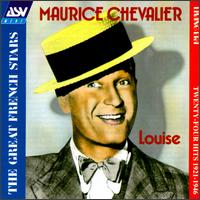 artistdirect.com
Among the most beloved song-and-dance men of the pre-war era. Born September 12, 1888 in Paris, he turned to singing in Parisian cafes and music halls; although his voice lacked power, he compensated with his fine comedic skills, and before long was among the most popular performers in France, often partnering with the infamous Minstinguett in the Folies-Bergere. In 1925 he introduced "Valentine," one of the songs with which he remained identified for the duration of his career. Upon learning of the advent of motion picture sound, Chevalier relocated to Hollywood in 1928; a year later he made his American debut in Innocents of Paris, which popularized his song "Louise." He next appeared opposite Jeanette MacDonald in Ernst Lubitsch's hit The Love Parade, a role which earned him an Academy Award nomination in the Best Actor category. Chevalier and MacDonald made a total of four films together, the most successful of them Rouben Mamoulian's 1932 effort Love Me Tonight, which included several original compositions by Rodgers & Hart, among them "Mimi" and "Isn't It Romantic."
artistdirect.com
Among the most beloved song-and-dance men of the pre-war era. Born September 12, 1888 in Paris, he turned to singing in Parisian cafes and music halls; although his voice lacked power, he compensated with his fine comedic skills, and before long was among the most popular performers in France, often partnering with the infamous Minstinguett in the Folies-Bergere. In 1925 he introduced "Valentine," one of the songs with which he remained identified for the duration of his career. Upon learning of the advent of motion picture sound, Chevalier relocated to Hollywood in 1928; a year later he made his American debut in Innocents of Paris, which popularized his song "Louise." He next appeared opposite Jeanette MacDonald in Ernst Lubitsch's hit The Love Parade, a role which earned him an Academy Award nomination in the Best Actor category. Chevalier and MacDonald made a total of four films together, the most successful of them Rouben Mamoulian's 1932 effort Love Me Tonight, which included several original compositions by Rodgers & Hart, among them "Mimi" and "Isn't It Romantic."
Fréhel IMDB.com 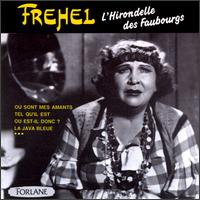
Jean Gabin 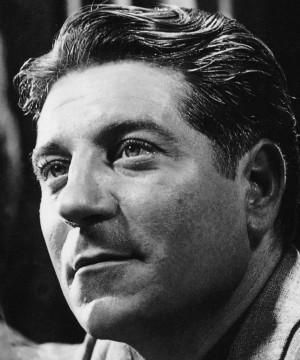 allmusic.com
The most popular French actor of the pre-war era, Jean Gabin was the essence of world-weary stoicism; a classic anti-hero, his characters ran the gamut of society's victims and losers, outsiders damaged by life and with no hope of survival. The son of professional cabaret performers, and raised by relatives in the country, after World War I Gabin was apprenticed to a Parisian construction company before deciding to follow in his parents' footsteps, struggling as a performer for several years before finally entering the military. Upon his discharge he appeared in a series of musical revues, followed in 1926 by a pair of operettas, La Dame en Decolette and Trois Jeunes Filles Nues. He also toured South America, and upon returning to France signed on with the Moulin Rouge. Gabin's career began picking up steam through his varied theatrical and music hall performances, and after rejecting a contract offer from a German film company he signed with Pathé-Natan, making his screen debut in 1930's Chacun sa Chance.
allmusic.com
The most popular French actor of the pre-war era, Jean Gabin was the essence of world-weary stoicism; a classic anti-hero, his characters ran the gamut of society's victims and losers, outsiders damaged by life and with no hope of survival. The son of professional cabaret performers, and raised by relatives in the country, after World War I Gabin was apprenticed to a Parisian construction company before deciding to follow in his parents' footsteps, struggling as a performer for several years before finally entering the military. Upon his discharge he appeared in a series of musical revues, followed in 1926 by a pair of operettas, La Dame en Decolette and Trois Jeunes Filles Nues. He also toured South America, and upon returning to France signed on with the Moulin Rouge. Gabin's career began picking up steam through his varied theatrical and music hall performances, and after rejecting a contract offer from a German film company he signed with Pathé-Natan, making his screen debut in 1930's Chacun sa Chance.
Lys Gauty 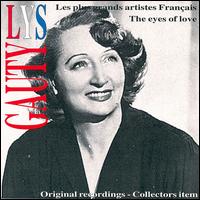 Rina Ketty
Rina Ketty 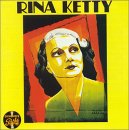
Mistinguett  Parisian music-hall was cafe-concert gone upmarket, and during the 1920s Mistinguett (far more than Josephine Baker) was its queen. No recording can do justice to a star as much dancer and sheer phenomenon as singer ‹ but singer she was: of "Mon Homme"; of comedy duets and cabaret songs and everything that can stand for the City of Light when it was the world's cultural capital. She "discovered" Maurice Chevalier, she "discovered" Jean Gabin. She was a scandal and a delight. ‹ John Storm Roberts, Original Music
Parisian music-hall was cafe-concert gone upmarket, and during the 1920s Mistinguett (far more than Josephine Baker) was its queen. No recording can do justice to a star as much dancer and sheer phenomenon as singer ‹ but singer she was: of "Mon Homme"; of comedy duets and cabaret songs and everything that can stand for the City of Light when it was the world's cultural capital. She "discovered" Maurice Chevalier, she "discovered" Jean Gabin. She was a scandal and a delight. ‹ John Storm Roberts, Original Music
Edith Piaf 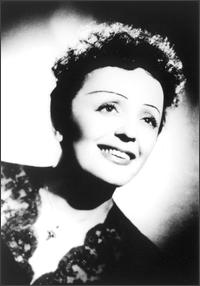 artistdirect.com
Probably the most popular French singer ever due to her chansons performed with passion and force, Edith Piaf's inimitable voice conquered millions of listeners during several decades. Some of the songs she wrote herself ("La vie en rose," "L'hymne a l'amour"), the others were the results of her long-time collaboration with such composers as R. Asso ("Mon Legionnaire"), Georges Moustaki ("Milord") and Charles Dumont ("Non, je ne regrette rien"). She was often affectionately called 'Sparrow of Paris' ('Piaf' means 'sparrow' in French). ~ Yuri German, All Music Guide
artistdirect.com
Probably the most popular French singer ever due to her chansons performed with passion and force, Edith Piaf's inimitable voice conquered millions of listeners during several decades. Some of the songs she wrote herself ("La vie en rose," "L'hymne a l'amour"), the others were the results of her long-time collaboration with such composers as R. Asso ("Mon Legionnaire"), Georges Moustaki ("Milord") and Charles Dumont ("Non, je ne regrette rien"). She was often affectionately called 'Sparrow of Paris' ('Piaf' means 'sparrow' in French). ~ Yuri German, All Music Guide
Berthe Sylva 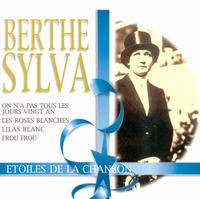
|